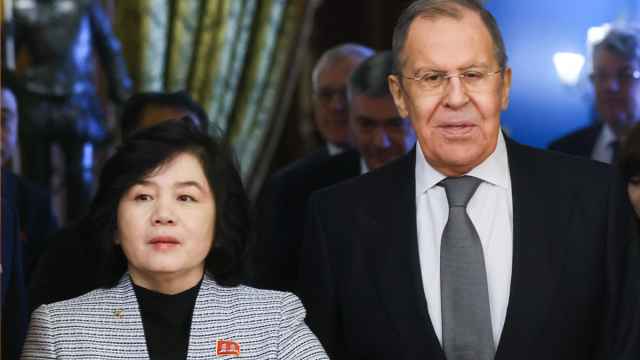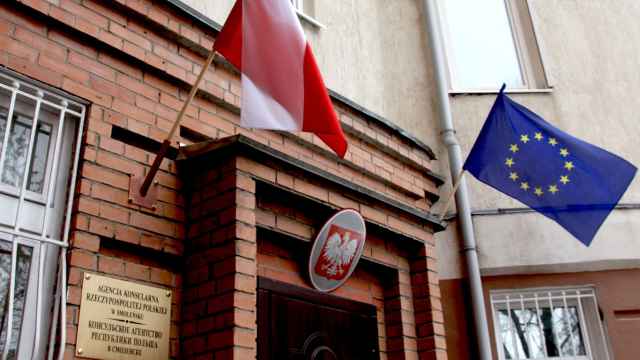Poland will revoke permission for Russia’s last operating consulate in the country, Polish Foreign Minister Radosław Sikorski said Wednesday, after Warsaw accused Moscow of orchestrating acts of sabotage against its national rail network.
“I have decided to withdraw consent for the operation of the Russian consulate in Gdansk,” Sikorski told reporters, adding that the move was in response to two acts of sabotage that occurred earlier this week and over the weekend.
In the first incident, a steel clamp was attached to the track in what Polish Prime Minister Donald Tusk said was “likely intended to derail a train.” The second involved the detonation of a military-grade explosive device as a freight train passed. No injuries were reported in that second incident.
The closure of the Gdansk consulate leaves only the Russian Embassy in Warsaw open as Poland continues to scale back its diplomatic ties with Moscow amid tensions caused by the ongoing war in Ukraine.
Kremlin spokesman Dmitry Peskov called the announced closure of the Russian consulate a “manifestation of degraded relations” between the two countries.
“Polish authorities want to reduce all opportunities for consular or diplomatic relations to zero,” Peskov told reporters at a briefing. “This has nothing to do with common sense.”
Russia’s Foreign Ministry said it would reduce Poland’s diplomatic presence in Russia in response to the closure of its Gdansk consulate. It did not provide further details or specify when that tit-for-tat measure would take effect.
On Tuesday, Tusk told Poland’s parliament that two Ukrainians working with Russian security services had been identified as suspects in the sabotage acts and were believed to have fled to neighboring Belarus.
Tusk called the incidents “perhaps the most serious national security situation in Poland since the outbreak of the full-scale war in Ukraine.”
AFP contributed reporting.
A Message from The Moscow Times:
Dear readers,
We are facing unprecedented challenges. Russia's Prosecutor General's Office has designated The Moscow Times as an "undesirable" organization, criminalizing our work and putting our staff at risk of prosecution. This follows our earlier unjust labeling as a "foreign agent."
These actions are direct attempts to silence independent journalism in Russia. The authorities claim our work "discredits the decisions of the Russian leadership." We see things differently: we strive to provide accurate, unbiased reporting on Russia.
We, the journalists of The Moscow Times, refuse to be silenced. But to continue our work, we need your help.
Your support, no matter how small, makes a world of difference. If you can, please support us monthly starting from just $2. It's quick to set up, and every contribution makes a significant impact.
By supporting The Moscow Times, you're defending open, independent journalism in the face of repression. Thank you for standing with us.
Remind me later.






